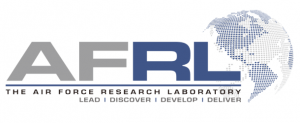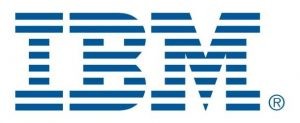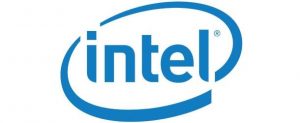Quantum News Briefs September 27: IonQ Announces Largest 2024 U.S. Quantum Contract Award of $54.5M with United States Air Force Research Lab • IBM Expands Quantum Data Center in New York State to Advance Algorithm Discovery Globally • Intel Co-Launches Quantum AI Challenge for HBCUs to Boost Innovation • Welinq Establishes Prestigious Scientific Advisory Board to Propel Modular Quantum Computing Innovations

IonQ Announces Largest 2024 U.S. Quantum Contract Award of $54.5M with United States Air Force Research Lab
 IonQ (NYSE: IONQ), a leader in the quantum computing industry, today announced that it has signed a $54.5 million contract with the United States Air Force Research Lab (AFRL). With a quarter remaining in the fiscal year, IonQ has announced $72.8 million in bookings year-to-date and reiterated its confidence in meeting or exceeding its bookings guidance of $75-95 million for the year.
IonQ (NYSE: IONQ), a leader in the quantum computing industry, today announced that it has signed a $54.5 million contract with the United States Air Force Research Lab (AFRL). With a quarter remaining in the fiscal year, IonQ has announced $72.8 million in bookings year-to-date and reiterated its confidence in meeting or exceeding its bookings guidance of $75-95 million for the year.
The focus of the AFRL partnership is to design, develop, and deliver technology and hardware that enables the scaling, networking, and deployability of quantum systems. The project will help advance quantum networking compatibility with existing telecommunications infrastructure, interoperability with different quantum systems and devices, and deployability of systems suitable for various environments. The contract will be delivered over four years.
“I am proud to be the leading voice in Congress to strengthen the partnership between IonQ and the Rome Air Force Research Lab which strengthens our AFRL-Rome, New York facility as the center of gravity for quantum computing research within the Department of Defense. This collaboration is bringing new  quantum computing jobs to Rome, and the work done there will ensure the U.S. remains the global defense leader,” said Congresswoman Elise Stafanik.
quantum computing jobs to Rome, and the work done there will ensure the U.S. remains the global defense leader,” said Congresswoman Elise Stafanik.
This AFRL contract builds upon the momentum IonQ has driven in quantum networking over the last year. IonQ announced last month that it was selected by the Applied Research Laboratory for Intelligence and Security (ARLIS) for a quantum networking contract to design a first-of-its-kind, networked system for blind quantum computing.
IBM Expands Quantum Data Center in New York State to Advance Algorithm Discovery Globally
 IBM announced September 26 the completion of its latest expansion of the IBM Quantum Data Center in Poughkeepsie, New York, which operates the highest number of available utility-scale quantum computers at a single location in the world. These systems are a part of the more than a dozen quantum computers offered to global clients via the IBM cloud.
IBM announced September 26 the completion of its latest expansion of the IBM Quantum Data Center in Poughkeepsie, New York, which operates the highest number of available utility-scale quantum computers at a single location in the world. These systems are a part of the more than a dozen quantum computers offered to global clients via the IBM cloud.
To advance its mission of bringing useful quantum computing to the world, IBM has heavily invested in deploying advanced quantum hardware architectures. First introduced late last year, the IBM Quantum Heron processor has now been deployed in IBM’s global Quantum Data Center in Poughkeepsie.
Now available via the cloud, IBM’s Heron-based system offers up to a 16-fold improvement in performance and a 25-fold increase in speed over previous IBM quantum computers as they were measured two years ago. In addition to the two IBM Heron-based computers now available, the additional systems within the IBM Quantum Data Center in Poughkeepsie are now all capable of operating at the level of utility-scale: the point at which quantum computers can run quantum circuits more accurately than classical computers simulating them. In turn, this opens the possibility to explore new computational territories for global users who are pushing forward the discovery of new quantum algorithms that will unlock quantum advantage.
In Other News: AI*Business Reports “Intel Co-Launches Quantum AI Challenge for HBCUs to Boost Innovation”
 Intel has co-launched a new initiative to foster innovation and collaboration among Historically Black Colleges and Universities (HBCUs) by tackling real-world problems using quantum computing and AI technologies as reported by Heidi Velia in September 26 AI*Business Reports. Some participants will receive an Intel AI PC to run Python-based quantum simulations enhanced with AI.
Intel has co-launched a new initiative to foster innovation and collaboration among Historically Black Colleges and Universities (HBCUs) by tackling real-world problems using quantum computing and AI technologies as reported by Heidi Velia in September 26 AI*Business Reports. Some participants will receive an Intel AI PC to run Python-based quantum simulations enhanced with AI.
The new Quantum AI Challenge invites participants to define and solve complex optimization problems that could transform industries such as healthcare, energy, material science and the supply chain.
The initiative prioritizes HBCU students, faculty and researchers working in teams of two to five members, along with projects focused on healthcare, education, energy, material science, or other social-impact fields.
The winning teams will present their solutions to a global audience, earning prizes, mentorship and more.
The new initiative is part of Intel’s collaboration with data and AI company Flapmax which aims to accelerate AI innovation in underserved populations.
Welinq Establishes Prestigious Scientific Advisory Board to Propel Modular Quantum Computing Innovations
 Welinq, a pioneering modular quantum computing and interconnect company, has announced the formation of its Scientific Advisory Board, composed of four of the world’s most influential figures in quantum information science. Welinq’s mission is to enable quantum computing by interconnecting quantum processors.
Welinq, a pioneering modular quantum computing and interconnect company, has announced the formation of its Scientific Advisory Board, composed of four of the world’s most influential figures in quantum information science. Welinq’s mission is to enable quantum computing by interconnecting quantum processors.
This esteemed board will guide Welinq’s strategic direction and R&D efforts, positioning the company at the forefront of modular quantum computing and networking—critical architectures for the future of distributed quantum technologies.
The Scientific Advisory Board members are:
Professor Alain Aspect: Professor at the Institut d’Optique-Université Paris-Saclay and École Polytechnique, as well as an Emeritus Research Director at CNRS. He is a member of the French Academy of Sciences. His work on fundamental quantum phenomena involving photons and atoms has earned him numerous prestigious awards, establishing him as a leading figure in quantum information research.
Professor Artur Ekert: Professor of Quantum Physics at the University of Oxford, whose work has been instrumental in advancing secure quantum communication protocols. He has received several prestigious awards, including the 2019 Micius Quantum Prize for his contributions to quantum communication.
Professor Kae Nemoto: Kae Nemoto leads the Quantum Information Science and Technology Unit at OIST Graduate University in Okinawa, Japan, and serves as the Director of the Quantum Information Science Center at Japan’s National Institute of Informatics.
Professor Peter Zoller: Peter Zoller is a distinguished theoretical physicist and a professor at the University of Innsbruck, Austria. A pioneering theorist in quantum optics, quantum information processing, and quantum error correction.



















